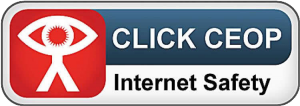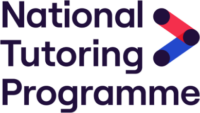Online Safety is an important part of our curriculum to ensure the children are well prepared to manage the dangers and benefits of using the internet. Children have increased access to the internet, smartphones and tablets. It is crucial that we all support children so that they can access these safely.
At school we teach Online Safety during Computing sessions and PHSE. We also embed Online Safety through assemblies and provide information to parents.
#WakeUpWednesday>>
Click above to enter a list of Wake up Wednesday guides we have posted. Alternatively search for specific guides you need at www.nationalonlinesafety.com
Advice for Parents/ Carers
Staff and Governors work hard to ensure that the children have a good understanding of Online Safety in school however these messages need to be supported and backed by Parents & Carers at home.
The following websites provide excellent advice and training for parents on Online Safety.
Net Aware – produced by O2 and NSPCC, is a guide for parents to 39 of the most popular sites, apps and games that young people use. Using reviews from adults and children, it helps parents decide if a site is right for their child, if it’s age appropriate and explores what risks they might encounter, enabling parents or professionals to help keep their children safe online.
Think you know – Click to find the latest information on the sites you like to visit, mobiles and new technology. Find out what’s good, what’s not and what you can do about it
Internet Matters– Internet Matters is a not-for-profit organisation working with online safety experts to bring you all the information you need to keep your children safe online.
Parent Zone– From internet safety magazines and online training, to parent guides on the latest digital trends and platforms, you can find advice and support here.
Parent Info– Help and advice for families in a digital world. Parent Info is a collaboration between Parent Zone and NCA-CEOP, providing support and guidance for parents
NSPCC– If you’re worried about a child’s welfare, contact the NSPCC online, via the adult helpline on 0808 800 5000 or by text 88858. This can be done anonymously.
Get Safe Online- The UK’s leading source of unbiased, factual and easy-to-understand information on online safety.
Get Safe Online- Get Safe Online is the UK’s leading source of unbiased, factual and easy-to-understand information on online safety. Cyber Aware promotes simple online behaviours which people can take to help protect themselves from cyber criminals.
Public Wifi– Are you using public WiFi? Click the link to check your location. More info
Kidscape– Kidscape equips young people, parents and professionals with the skills to tackle bullying and safeguarding issues across the UK. They offer advice on dealing with cyberbullying.
DfE: Advice for parents and carers on cyberbullying
Family Lives- Help and advice for parents, carers and schools to deal with all forms of bullying.
They have an online chat service and you can also call their helpline on 0808 800 2222.
Gov.uk– covid-19 support for parents and carers to keep children safe online
Gocompare– contacted us to provide a guide which compiled information regarding broadband parental controls and internet safety for children.
DfE– Harmful online challenges and online hoaxes (Published 12 February 2021) …scroll to the bottom of the document for parent help links.
The Professionals Online Safety Helpline supports professionals working with children and young people, providing guidance on all aspects of digital and online issues. Call 0844 381 4772.
“This Report Harmful Content button is an asset of SWGfL, a charity working internationally to ensure all benefit from technology, free from harm.
The button has been developed to offer anyone living in the UK a simple and convenient mechanism for gaining access to reporting routes for commonly used social networking sites, gaming platforms, apps and streaming services alongside trusted online safety advice, help and support. It also provides access to an online mechanism for reporting online harm to the RHC service for those over the age of 13 where an initial report has been made to industry but no action has been taken. RHC will review content in line with a sites’ community standards and act in a mediatory capacity where content goes against these.
Children under 13 years of age are encouraged to tell an adult that they trust about what has happened and to ask for their help in reporting this going through our how we can help resource together.
RHC also have advice and links to reporting routes for other online harms people may come across or face, such as impersonation, privacy violations and intimate image abuse.
The RHC button provides a gateway to the RHC reporting pages, an area of the RHC website offering:
- links to reporting routes on commonly used sites for 8 types of online harm
- help, advice and support on what to do if experiencing or witnessing harm online
- signposting to industry partners reporting forms and the ability to reportlegal but harmful content directly to RHC for further investigation
Reporting to RHC
Reports can be made 24/7 through the online reporting forms and helpline practitioners will review and respond to reports within 72 hours between 10am and 4pm Monday to Friday.
Reports can be made to RHC by anyone over the age of 13. SWGfL operates 3 helplines and to be sure you’re getting the right support take a look at the Helpline flowchart to find out who can best support you.” https://reportharmfulcontent.com/
Don’t forget… If you have concerns about online behaviour you can report to CEOP/police.
For up to date News and Information…
Using Technology and Staying Safe
Click here to find guides which will help you to apply ‘Parental Control’ settings to devices or platforms your child is using.




